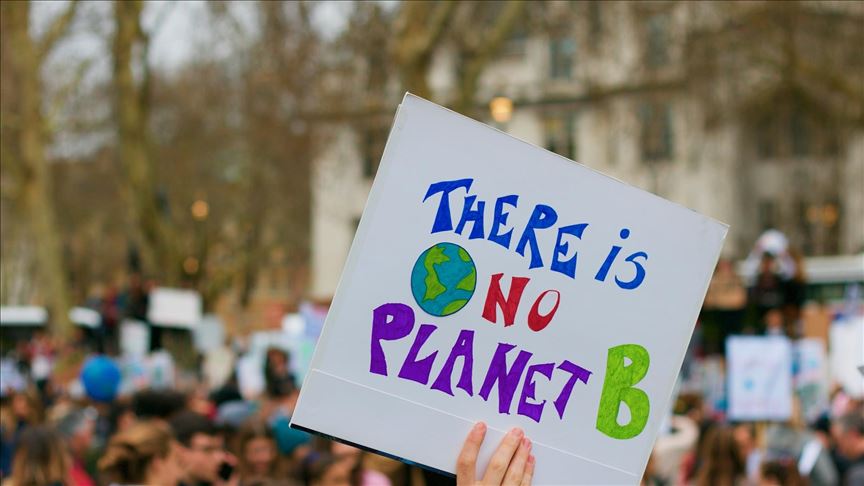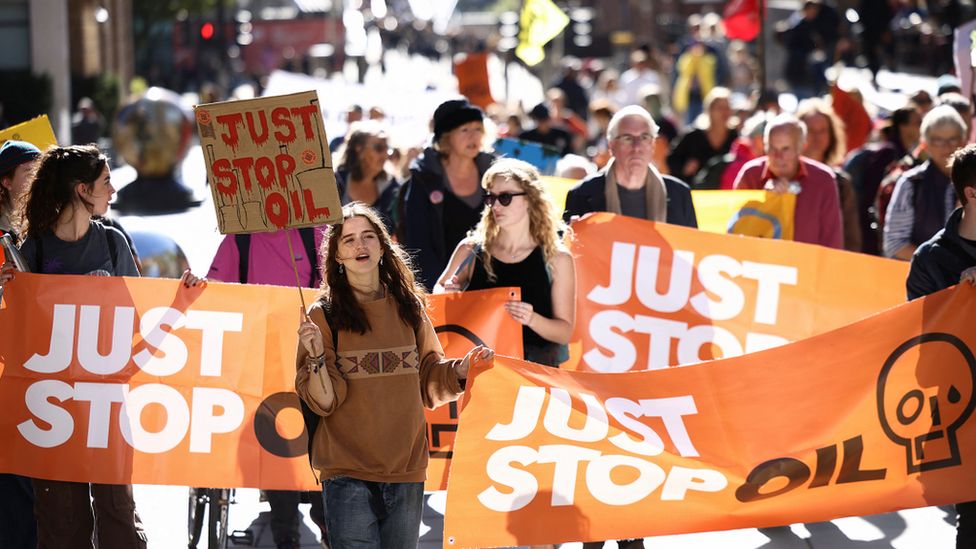After the latest environmental activism actions, we need to discuss whether we are working with something effective and positive.
Are we Help The World with this Environmental Activism?
On Friday 14th 2022, two environmental activists threw a can of tomato soup onto Van Gogh’s “Sunflowers”. Wearing t-shirts with “Just Stop Oil” printed on them, they shouted: “What is worth more: art or life?” It was environmental activism at its loudest.

Of course, the event sent shockwaves through social media. Debate ensued, and while some cheered on, the overwhelming response was far from positive. Some went as far as to claim the protest was “Taliban-like”. Others simply thought of the whole thing as nonsensical.
Even the fashion community pitched in. Industry watch-dog Diet Prada said it all through a clown emoji, employed when referring to an event of the same kind.
Yet the truth is that the painting was not damaged and one third of Pakistan is underwater. The soup-throwing was just a stunt and climate change is getting worse day by day. The world is outraged by the illusion of damage to a painting but unfaced by impending doom.
And so, one cannot help but wonder: what if this kind of environmental activism is necessary to trigger conversations? What are the implications of such civil disobedience? Is it actually productive? And how does the fashion industry tie into it all?
Just Stop Oil’s Environmental Activism
Who is Just Stop Oil?
Just Stop Oil is a UK-based environmentalist group. As its name would suggest, its goal is to push the UK government to stop the exploration, development and production of oil. The reasons behind this are pretty self-evident, the main one being the fatal consequences of oil production. Furthermore, the organization makes a point to remark the injustice in the effects of climate change. For the Global South is experiencing most of the consequences, though it is the least responsible for the emergency.

And so it is in an effort to catalyze change that the group engages in acts of civil disobedience. Beyond the soup-throwing, members have painted central-London buildings orange, blocked streets, attempted trespassing, etc… Importantly, according to the organization’s statements, the aim is not necessarily to bring awareness. It is not necessarily about getting people’s attention, but rather about poking the bear that is the UK government.
Such methods of attention-seeking and disruption have actually become more and more common in environmental activism in general. Gen-z New Yorkers are deflating SUV tires all over the Upper East Side. UK Pipe Busters are destroying pipelines. Others are attacking Cambridge buildings. This heightening of strategies compared to years prior can be said to be proportionate to the aggravation of the climate crisis.
A Method Used by the Suffragettes
Does all this increasing tension seem familiar? Well, that’s because it is no new phenomenon. The early 20th century UK Suffrage Movement was shockingly similar in its development. The movement increased in intensity as time went on. More particularly, the Women’s Social and Political Union engaged in increasingly unruly methods to meet its objectives.
Indeed, in 1914, suffragette Mary Richardson walked into the National Portrait Gallery and slashed Velasquez’s Rokeby Venus. The choice of the painting, one of a woman utterly objectified, was well thought-out. She was pointing out the encasement of women in physical beauty, without being given the beauty of justice.
Much like the recent event, Richardson’s act was not well received, leading some to question its effectiveness. Still, in February 1918, women over thirty were given the right to vote. Then, ten years later, in 1928, the Equal Franchise Act of 1928 equalized voting rights between men and women.
Of course, it is hard to link the slashing of a single painting with such big political shifts. Moreover, it is historically questionable whether it was the most radical actions which were the most helpful in the movement. Yet research suggests that a diversity of actions, including acts of disobedience, are the most effective in fighting for a cause. Passive acts like voting, investing and consuming seem most limited in scope.
The Complexity of Just Stopping Oil
Losing People’s Sympathies?
Having highlighted the possible effectiveness of a more aggressive, soup-throwing environmental activism, we must also look at the flip side. Sure, Just Stop Oil is not looking to be liked, but to spur action. Nevertheless, we cannot deny that people play a role in that. Because voting for one politician or the other means voting for one environmental policy or the other. So the truth is that climate activists need people on their side. Causing outrage might bring attention to the issue. But is it the good kind?
Let’s go back to the suffragettes. It is possible that more than Richardson’s rage-inducing actions, it was women’s war efforts which shifted public opinion. So it’s not like environmental activism can simply throw people’s views out of the window. This paints all that soup-throwing in a different light.
Still, there is one more thing to consider. What might people opine of just stopping oil? What does it mean to halt oil production?
Oil and the Economy
The short-term impact of rapidly and significantly reducing fossil fuel production is not positive. A plethora of global phenomena provide a current example of this. The results? Backouts in developing countries and cost of living crisis in Western Europe.
Furthermore, a swift switch away from fossil fuels might mean rising energy costs. People, in general, do not wish for higher energy costs. Working-class families in the US, for example, could find themselves greatly affected by this. Energy is essential and increasing prices might actually affect the most vulnerable, something Just Stop Oil is actively against.
None of this, however, takes away from the urgency of stopping oil production. It is clear that this must happen and that we are doomed if we don’t. Rather, the above-mentioned facts call into question whether asking for an outright halt in oil production is practicable and favorable.
It might be that environmental activism should instead focus on pushing for the development of green technology. If green technologies are cheaper, then carbon-free options are more broadly accessible, which weakens the prevalence of fossil fuels. Hence, urging for policies to make carbon-free energy cheaper and more accessible could be the real answer.
But What About the Fashion Industry?
Perhaps shockingly, the fashion industry is of staggering relevance to this topic. Here’s the deal. Synthetic fabrics like rayon, spandex, polyester, acrylic and nylon are all petroleum-based fibers. So, they rely on the extraction of oil in order to exist.
The key matter here is that oil extraction is becoming more and more damaging to the environment (take fracking). And it is estimated that “petrochemicals will represent up to 50% of growth in oil demand by 2050.” Simultaneously, the fashion industry is becoming increasingly more reliant on synthetic fibers. Currently, 69% of all fabric production involves synthetic materials. Add to this that, due to their cheap nature, synthetic fibers enable fast fashion. All and all, it can be said the fashion industry is becoming more and more reliant on fossil fuels.
Yes, it might be that Just Stop Oil is speaking to governments. But the truth is that industries have a say in it too. It isn’t enough to poke fun at these disruptive acts on social media. The activists were not just throwing soup at art, but also at the world; at the fashion industry. The fashion world also has its part in it and should therefore shuld seek to improve itself. It is time to seriously question the pervasive use of synthetic materials.
Like this article? Check out everything you need to know about greenhouse gas emissions.






